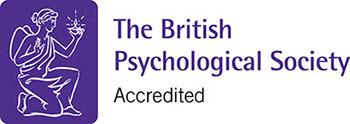Note about optional modules (if available): The below is indicative of the typical modules offered, but is not intended to be construed or relied on as a definitive list of what might be available in any given year. The module content and availability is subject to change.
The programme provides the opportunity for personal and professional development, and encourages you to think about your preferred direction in psychology.
It focuses on introductory psychology and the different approaches psychology has adopted theoretically and in research. Some of the approaches that will be covered are:
- developmental
- social
- cognitive
- mental health
- research methods
You'll be expected to carry out additional study and reading.
Teaching style
This programme is taught through a mixture of lectures, seminars and workshops. You’ll also be expected to undertake a significant amount of independent study. This includes carrying out required and additional reading, preparing topics for discussion, and producing essays or project work.
The following information gives an indication of the typical proportions of learning and teaching for each year of this programme*:
- Year 0 - 21% scheduled learning, 79% independent learning
- Year 1 - 14% scheduled learning, 86% independent learning
- Year 2 - 15% scheduled learning, 85% independent learning
- Year 3 - 14% scheduled learning, 86% independent learning
How you’ll be assessed
You’ll be assessed by a variety of methods, depending on your module choices. These include coursework, examinations, group work and projects.
The following information gives an indication of how you can typically expect to be assessed on each year of this programme*:
- Year 0 - 58% coursework, 43% written exam
- Year 1 - 53% coursework, 47% written exam
- Year 2 - 34% coursework, 66% written exam
- Year 3 - 55% coursework, 45% written exam
*Please note that these are averages are based on enrolments for 2022/23. Each student’s time in teaching, learning and assessment activities will differ based on individual module choices. Find out more about how this information is calculated.
Download the programme specification.
Please note that due to staff research commitments not all of these modules may be available every year.
